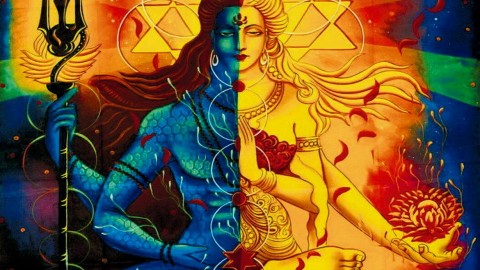Profound Revolution – In Gita Verse 18.43 Heroism, power, determination, resourcefulness, courage in battle, generosity and leadership are the natural qualities of work for the kṣatriyas.
Bhagavad Gita Verse 18.43 delineates the intrinsic qualities of a Kshatriya, emphasising heroism, power, determination, resourcefulness, courage in battle, generosity, and leadership. These attributes are not merely superficial but are deeply ingrained in the very essence of a Kshatriya’s duties and responsibilities.
Bravery and courage are paramount. A Kshatriya is characterised by an unyielding spirit and an indomitable energy that propels them forward, even in the face of formidable challenges. They exhibit sharpness and cleverness, essential traits that enable them to navigate complex situations with astuteness and precision. Perseverance and patience further define their character, allowing them to remain steadfast and composed, regardless of the circumstances.
In the realm of battle, a Kshatriya’s nature is to confront challenges head-on, never retreating even in the face of death. For a Kshatriya, death is an acceptable outcome, but turning back is not. This unwavering resolve underscores their commitment to their duty and their honour. The very thought of retreating is anathema to their nature.
Generosity is another hallmark of a Kshatriya. Even in the absence of material wealth, a Kshatriya finds it difficult to refuse when someone asks for help. Giving is an inherent part of their nature, and they are often seen as great donors. This attribute is juxtaposed with their sense of ownership and leadership. A Kshatriya naturally assumes a position of authority and responsibility, a trait that is deeply rooted in their sense of self.
The anecdote of Buddha’s father illustrates the stark contrast between a Brahmin and a Kshatriya. While a Brahmin can ask for alms without any ego, a Kshatriya’s life is built upon a foundation of pride and self-reliance. This ego is not a flaw but a defining characteristic that shapes their actions and decisions. A Kshatriya’s sense of honour and pride often leads them to give generously, reinforcing their sense of self-worth and leadership.
The story of Colonel Raj’s mother exemplifies the Kshatriya’s pride in giving. Her assertion that if someone gives her one rupee, she will return one hundred rupees, highlights the deep-seated sense of honour and obligation that defines a Kshatriya. This sentiment, while rooted in pride, is also a testament to their unwavering commitment to reciprocate and uphold their dignity.
Ownership and leadership are intrinsic to a Kshatriya’s nature. Even in the absence of material possessions, a Kshatriya’s sense of self-worth and authority remains intact. This is vividly illustrated by the story of the two Rajput youths who sought employment in Akbar’s court. Their willingness to sacrifice their lives to prove their bravery underscores the profound sense of honour and duty that defines a Kshatriya.
Krishna’s teachings emphasise the importance of courage for a Kshatriya. This courage extends beyond the battlefield and permeates every aspect of their life. It is the courage to face the unknown, to admit one’s limitations, and to continuously seek knowledge and understanding. This quest for knowledge is not about accumulating information but about experiencing and living the truth.
The pursuit of knowledge often leads to a deeper understanding of reality, where distinctions between the knower, the known, and the knowledge begin to blur. This is the essence of true knowing, where one becomes one with reality, losing all distinctions and definitions. This state of being is what transforms ordinary activities into acts of meditation.
Taoist philosophy complements Krishna’s teachings by emphasising the importance of consciousness in every activity. It is not the activity itself but the awareness and mindfulness brought to it that matters. This perspective transforms even mundane activities into sacred acts, highlighting the potential for meditation and mindfulness in every aspect of life.
Krishna advocates for courage so that every action can become a form of meditation. This transformative approach allows even the art of archery, typically associated with violence, to become a non-violent practice. This paradigm shift represents a profound revolution in understanding and living one’s dharma.
The qualities of a Kshatriya as outlined in the Bhagavad Gita Verse 18.43 are not just about bravery and leadership but encompass a holistic approach to life that integrates courage, generosity, and mindfulness. These attributes, deeply rooted in their nature, guide their actions and decisions, ultimately leading to a life of honour, duty, and spiritual growth.
Tags: Profound Revolution





